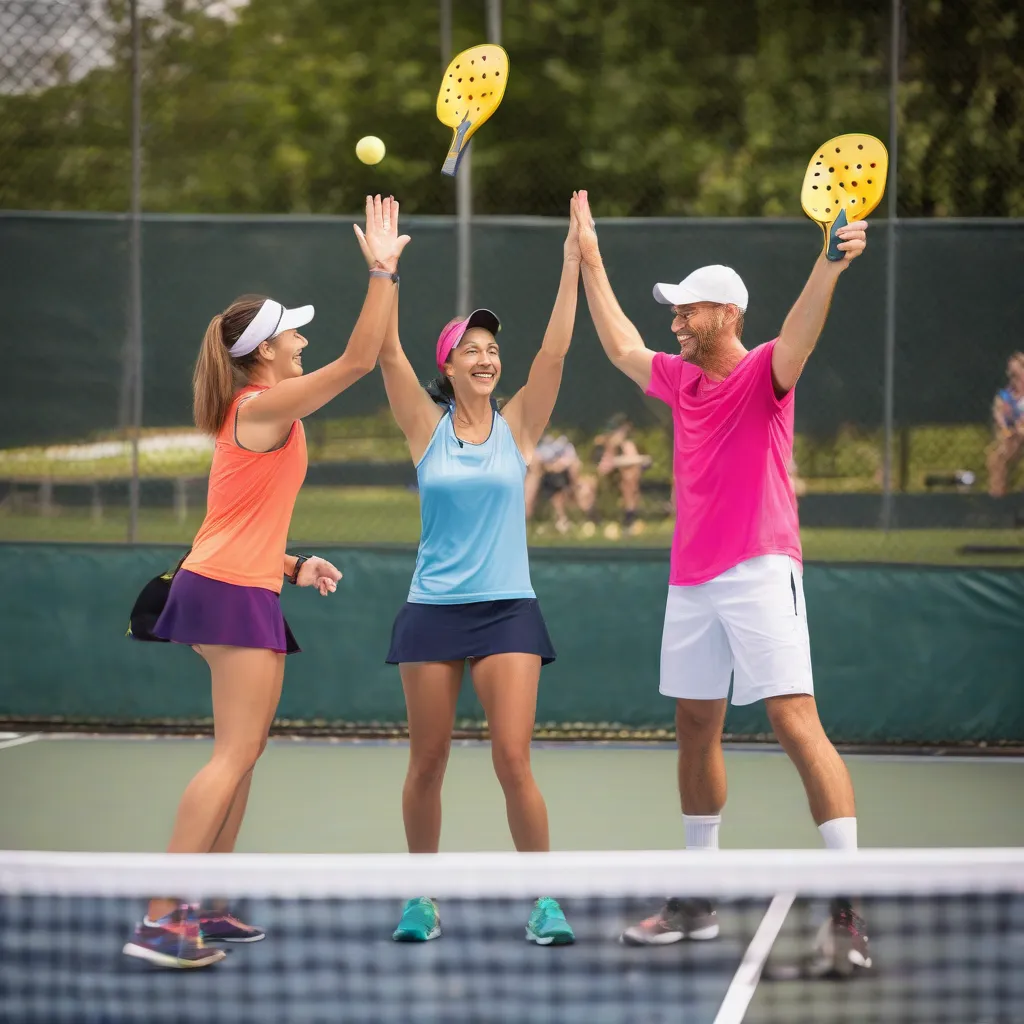Imagine this: you’re in a tight pickleball match, the score is deuce, and your heart is pounding. You’ve practiced your serves, perfected your dinks, and honed your volleys, but suddenly, your mind starts playing tricks on you. Doubt creeps in, and your performance falters. This is where sports psychology comes into play. It’s the secret weapon that can elevate your game from good to great. This article will delve into practical sports psychology tips tailored for pickleball competitors of all levels, helping you develop the mental fortitude to dominate the court.
Mastering the Mental Game: Key Strategies for Pickleball Success
Pickleball, while a fun and social sport, demands mental resilience just like any other competitive activity. Whether you’re a seasoned tournament player or a weekend warrior, understanding the psychology behind peak performance is crucial.
Goal Setting: Your Roadmap to Pickleball Prowess
Setting clear, achievable goals is the foundation of any successful endeavor, and pickleball is no exception. Instead of vaguely aiming to “play better,” define specific, measurable, attainable, relevant, and time-bound (SMART) goals. For example, instead of “improve my serve,” try “increase my first serve percentage to 70% within the next month.” Breaking down larger goals into smaller, manageable steps makes them less daunting and provides a sense of accomplishment as you progress.
Visualization: Mentally Rehearsing for Victory
Visualization is a powerful tool used by athletes across various disciplines. Before a match, close your eyes and vividly imagine yourself executing perfect shots, moving with agility, and making strategic decisions. This mental rehearsal trains your mind and body to perform at their best. “Visualize yourself winning, and you’re halfway there,” as the saying goes. Even visualizing specific challenging scenarios and how you’ll overcome them can build confidence and reduce anxiety.
Mindfulness and Focus: Staying Present on the Court
Pickleball requires quick reflexes and strategic thinking. Distractions, like dwelling on past mistakes or worrying about the outcome, can hinder your performance. Practicing mindfulness techniques, such as focusing on your breath or using positive self-talk, can help you stay present and engaged in the game. “Be where your feet are” is a valuable reminder to focus on the current point, not the previous one or the next.
Managing Pressure: Turning Anxiety into Fuel
Pressure is inevitable in competition. The key is to learn how to manage it effectively. Deep breathing exercises, progressive muscle relaxation, and positive affirmations can help calm your nerves and maintain focus. Remember, a certain level of anxiety can actually enhance performance by sharpening your senses and increasing your adrenaline. The challenge is to channel that nervous energy into positive action.
Building Confidence: Embracing the Challenge
Confidence is built on a foundation of preparation and positive self-belief. Focus on your strengths, celebrate your successes, and learn from your mistakes without dwelling on them. Remember that everyone makes errors, even the pros. “The greatest glory in living lies not in never falling, but in rising every time we fall,” as Nelson Mandela wisely said. Embrace challenges as opportunities for growth and development.
The Power of Positive Self-Talk: Your Inner Cheerleader
The way you talk to yourself has a profound impact on your performance. Negative self-talk can erode your confidence and lead to self-sabotage. Cultivate a positive inner dialogue by replacing negative thoughts with affirmations and focusing on your strengths. Instead of “I can’t hit that shot,” try “I’m going to focus on my technique and give it my best.”
Leveraging Sports Psychology for Doubles Play: Teamwork Makes the Dream Work
In doubles pickleball, communication and teamwork are paramount. Establishing clear roles and responsibilities, supporting your partner, and maintaining positive communication, even during challenging moments, are crucial for success. “Two heads are better than one” is especially true in pickleball doubles.
Dealing with Defeat: Learning from Setbacks
Losing is a part of any competitive sport. Instead of viewing defeat as a failure, see it as an opportunity to learn and grow. Analyze your performance, identify areas for improvement, and come back stronger next time. “It’s not whether you get knocked down, it’s whether you get up,” as Vince Lombardi famously said.
 Pickleball Players Celebrating Victory
Pickleball Players Celebrating Victory
- Bond, Payton (Author)
- English (Publication Language)
- Pickleball rules card – Say goodbye to confusion on the court with this easy-to-follow bi-fold rules reference. Side 1 and Side 2 feature official pickleball rules, including serving rules, scoring, the kitchen rule explained, and more. A great pickleball quick guide for players of all levels.
- For everyone who plays pickleball – Whether you're just learning or have played for years, this instructional pickleball training aid makes the rules easy to understand. It folds in the center for quick access and is great for gym class, coaching, or team practices.
- Arthur, S. M. (Author)
- English (Publication Language)
- Baker, Mr. Joe (Author)
- English (Publication Language)
- Publishing, Fitness Research (Author)
- English (Publication Language)
- Foster, Blake (Author)
- English (Publication Language)
- Hall, Dennis (Author)
- English (Publication Language)
- Dunmeyer, Phil (Author)
- English (Publication Language)
- Anderson, Brian (Author)
- English (Publication Language)
- Ritman, Alex (Author)
- English (Publication Language)
Conclusion: Unlocking Your Pickleball Potential
Sports psychology isn’t just for elite athletes; it’s a valuable tool for anyone looking to improve their game and enjoy the sport to the fullest. By implementing these tips and consistently working on your mental game, you can unlock your full pickleball potential, achieve your goals, and experience the thrill of peak performance. Remember, success in pickleball is not just about physical skills; it’s about mastering the mental game. Now, go out there, dominate the court, and have fun! We encourage you to share your own experiences and tips for applying sports psychology in pickleball. What mental strategies have worked best for you? Let us know in the comments below!









